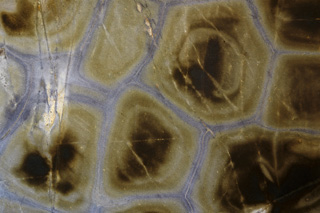 Marble – A Noble Stone
Marble – A Noble Stone
It conjures up images of majesty.
Ancient ruins of Greece and Rome. Magnificent European cathedrals with
soaring columns. Some of the great buildings of North America, from the United
Nations to the parliament buildings in Ottawa. The Washington Monument. They
are all built with marble, a stone that has become synonymous with enduring
quality, tradition, and prestige.
The word ‘
marble'
most likely comes from the Greek word ‘marmaron', which means ‘shining stone'.
It results from the metamorphosing of sedimentary carbonite rocks – usually limestone
or dolomite. The result is an interlocking mosaic of carbonite crystals, made
distinctive by unique swirls. Those are the results of impurities in the rock –
clay, silt, sand and iron oxides.
Marble is mined all over the world. Famous types include Carrara marble
from Italy (white or blue grey), green Connemara from Ireland, and stone from
the states of Georgia and Vermont. It has been a popular stone with sculptors –
it is resistant to shattering and exudes a soft, waxy, deep look in light. And
it has become popular in
home
construction.
Pros and Cons of Using Marble in
Your home
Benefits of marble:
-
It can significantly increase a home's
resale value. It exudes ‘quality'.
-
Every piece of marble is unique. There is
a fascination with its swirls and varied designs and colours.
-
Marble is highly durable and resilient.
-
It is also non-allergenic and, coupled
with this, it's bacteria-resistant, which is an advantage when used as a
kitchen countertop.
-
Marble flooring is cool and can be very
comfortable in the hot months.
-
It is easily polished.
Drawbacks:
-
Marble can scratch; if used for counters,
cutting boards are needed.
-
The flipside of the uniqueness of the
individual stone is that it is also difficult to match tiles.
-
Marble can scorch if hot items are placed
directly on it. Furthermore, drinks can leave rings and spills can stain
or etch marble's surface.
-
Marble requires routine resealing; if
uncoated it stains easily.
-
As with most stone, it is not advisable
for the do-it-yourself renovator to install.
-
Polished marble can be slippery as a floor
surface, especially in areas such as washrooms where there is moisture and
water spillage; however, the surface can be honed to make it less
slippery.
Buy local – and From A
Specialist
Marble is a unique stone and its installation is a specialized
task. If you decide on marble, then you
should seek out a
dealer who specializes in the stone. It is an upgrade finish for your home, so find a
dealer who has obvious pride in the product, rather than one for whom marble –
or other stone – is just another finish among many being sold. You can
recognize and encourage that professionalism by studying the kinds of marble available;
vendors always appreciate an informed purchaser and a specialist will leap at
the chance to help you find the ideal stone for your home.
You don't have to live in a palace to give off an aura of grandeur;
marble will do the work nicely. The added expense will repay you with its
enduring beauty – many times over.